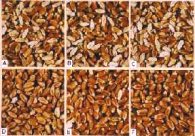Rachel Carson and the Awakening of Environmental Consciousness
Linda Lear, George Washington University
©Linda Lear ©National Humanities Center
|
|
(part 5 of 6)
Guiding Student Discussion (continued)
  |
Life article on thalidomide, 1962
| TimePix
|
|
|
 |
Just before Silent Spring was published the America public learned about the terrible medical consequences of the drug thalidomide and the birth defects it caused. In this case again it was a question of science putting a drug on the market before enough testing had been done to establish the dangers to a minority group of users. It is also interesting that in the case of thalidomide it was a female scientist at the U.S. Food and Drug Administration, Frances Kelsey, who had the courage to keep
this drug off
the American market. Kelsey and Carson dared to question authority and the direction of technological progress. Is new always better? What are the government's obligations to protect public health from products that may cause longterm damage even
though we may never have conclusive evidence of harm? How can this responsibility be balanced with the need to make the latest scientific discoveries available and affordable?
 |
Wheat-farming family in Uzbekistan, c. 1999
| CIMMYT
|
 |
Wheat genome research
China, c. 1995
| USDA
|
(bottom row more disease-resistant)
|
|
|
Obviously the banning of the domestic production of DDT in this country was similar to the current debate over the
production of genetically engineered crops, and the marketing of genetically altered foods. Students might debate
whether genetically altered crops are healthier and safer than crops that have been sprayed with a potpourri of toxic
chemicals. When so many starving people in the Third World could be saved by eating bread made from genetically
altered wheat, should governments have the right to prevent such food from coming to the market? Such a discussion
touches upon social ethics will be heated and boisterous. It presents you with the opportunity to reinforce the complex
events by which crops are grown, animals fed and raised, disease treated and fresh food eventually brought to the
American supermarket. In a day when most students live in urban and suburban areas, farming and animal husbandry are
remote processes. A debate on the merits of pesticides or genetically altered crops can involve not only the economics of agriculture, but also the ethics of science and technology.
|
 |
Farmer spraying maize crop with pesticide, Nicaragua, 1991
| UN/FAO
|
|
 |
Finally we must confront the reality that Rachel Carson failed to stop or even to mitigate the use of pesticides and that the pollution of the environment has worsened not lessened since she wrote Silent Spring. The U. S. alone uses over 60 billion tons of pesticides each year, and the world level of pesticide use is greater than ever. The controversy over DDT has never really ended since foreign export and production was never regulated.
Intl. Osprey Foundation  |
Osprey with fish
|
|
|
|
|
 |
DDT is found in the liver of birds and fish on every oceanic island on the planet, in the Arctic Ocean and Antarctica.
Public health officials argue that it is the only pesticide available to the Third World which is effective against insect born
diseases such as malaria and want to increase world production and use. Ask your students why the environmental
movement has failed to reduce the use of persistent chemical pesticides? This will open up a lively discussion about
lifestyles.
 |
 |
 |
| PictureQuest
|
"What kinds of catalysts are necessary to change lifestyles?"
|
|
 |
What kinds of catalysts are necessary to change lifestyles?
Sometimes these discussions lead students to think
that their individual actions make no difference, and that the problems of a toxic world are so enormous that they cannot
be solved. When that happens, be quick to point out Rachel Carson's legacy illustrates that consciousness is the first step
to change. The fact that Spring continues to be accompanied by bird song is proof that Carson succeeded and gives hope
for a responsible partnership with the natural world.
TeacherServe Home Page
National Humanities Center
7 Alexander Drive, P.O. Box 12256
Research Triangle Park, North Carolina 27709
Phone: (919) 549-0661 Fax: (919) 990-8535
Revised: June 2002
nationalhumanitiescenter.org |










